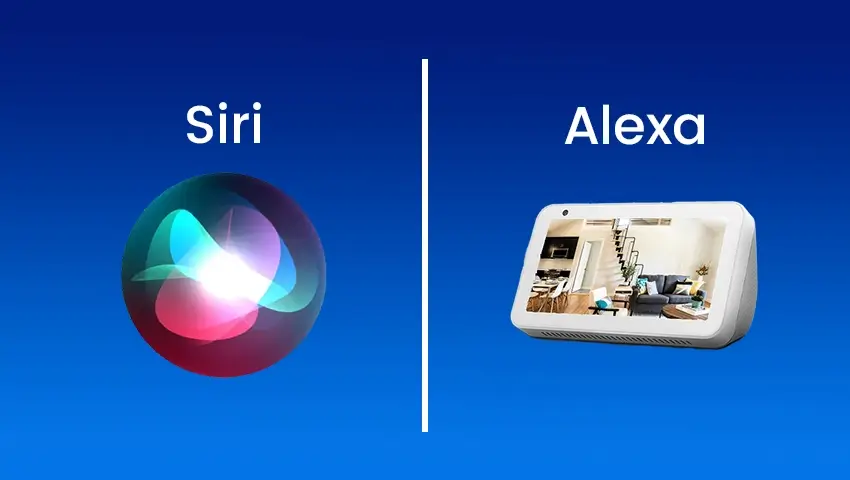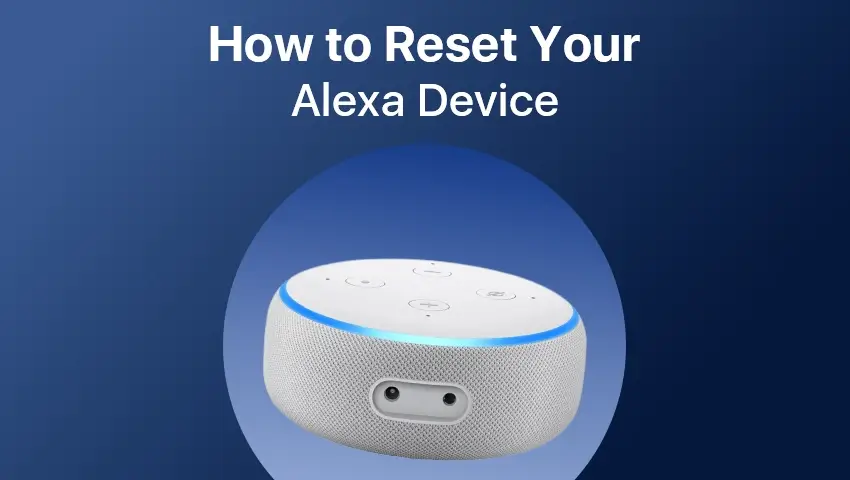Choosing between Siri and Alexa is a key decision for anyone embracing the smart home revolution, as each offers a unique approach to voice-controlled assistance. In today’s world of smart homes and connected devices, these AI-powered assistants aim to simplify our lives. They manage tasks, control smart devices, and access information through simple voice commands. But which assistant is the right choice for you? This blog will break down the core differences between Siri and Alexa in areas like device compatibility, voice commands, smart home control, connectivity, and privacy, helping you make an informed decision.
Contents
Device Compatibility: Siri vs Alexa
When it comes to compatibility, Siri and Alexa cater to different user bases. Siri is deeply integrated into Apple’s ecosystem, making it a natural fit for users who own multiple Apple devices like iPhones, iPads, Macs, and HomePods. Siri works best when all your devices are part of Apple’s closed system, where it can sync across devices effortlessly. It also integrates with HomeKit, Apple’s smart home platform, which allows users to control HomeKit-enabled devices like lights, locks, and thermostats.
Alexa, on the other hand, is much more versatile in terms of device compatibility. While Alexa also works well with Amazon devices such as the Echo, Fire TV, and Kindle, its real strength lies in its ability to connect to a wide range of third-party devices. From smart bulbs and thermostats to doorbells and security cameras, Alexa offers broader support across different brands. This makes it the better choice for users who don’t want to be tied to one ecosystem or prefer to mix and match devices from various manufacturers.
Voice Commands: Performance and Skills
Both Siri and Alexa are built around voice commands, but there are notable differences in how they handle them. Siri is optimized for Apple’s ecosystem, which means it performs best when using Apple-native apps and services. For instance, you can use Siri to send messages, set reminders, play Apple Music, and control Apple devices with ease. However, Siri is somewhat limited when it comes to interacting with third-party apps or services that don’t belong to Apple.
Alexa, on the other hand, offers a much broader range of skills. Amazon has created an open platform that allows third-party developers to create “skills,” which are essentially apps or capabilities that Alexa can perform. From ordering food to controlling a smart coffee maker, Alexa’s skill library is vast and continuously growing. Alexa can also integrate with more third-party services like Spotify, Google Calendar, and Uber, offering a more flexible user experience. Its voice recognition is often praised for being fast and accurate, especially with far-field technology that allows it to pick up commands from across the room.
Smart Home Control: Who Does It Better?
When it comes to smart home control, both Siri and Alexa are strong contenders, but there are some differences. Siri’s integration with Apple HomeKit provides a more seamless and secure experience if you’re already in the Apple ecosystem. Setting up devices is simple, and you can use Siri to control them with voice commands like “Hey Siri, turn off the lights” or “Hey Siri, lock the front door.” Apple’s Home app also offers a clean and easy-to-use interface for managing all your HomeKit-enabled devices in one place.
Alexa, however, has an edge when it comes to the sheer number of devices it supports. While HomeKit is limited to a select group of manufacturers, Alexa works with hundreds of smart home brands, including those that don’t support HomeKit. You can use Alexa to control everything from smart lights and locks to robot vacuums and kitchen appliances. Plus, Alexa allows for more complex routines, where you can combine multiple commands into one. For instance, saying “Alexa, good night” can turn off all your lights, lock your doors, and adjust your thermostat simultaneously.
Wi-Fi and Connectivity: Staying Connected
Both Siri and Alexa rely on a stable Wi-Fi connection to function, but how they handle connectivity differs slightly. Siri’s reliance on Apple’s ecosystem means it performs best when connected to other Apple devices on the same network. If your Wi-Fi goes down, Siri’s functionality will be limited, especially if you’re trying to control smart devices remotely. You can, however, still use Siri for tasks that don’t require the internet, like setting reminders or controlling your phone.
Alexa is more forgiving when it comes to connectivity. Since Alexa works on a variety of devices and platforms, it can handle network switches more smoothly. However, like Siri, if your Wi-Fi is down, Alexa will lose much of its functionality, especially for smart home control or accessing cloud-based services. Fortunately, Alexa offers better troubleshooting tools through the Alexa app, which can help you diagnose and fix connectivity issues.
Privacy and Security: A Key Concern
In an era of smart devices, privacy is a significant concern for many users, and both Siri and Alexa handle data privacy differently. Siri has a reputation for being more privacy-conscious than its competitors. Apple emphasizes that all voice data processed by Siri is encrypted and anonymized, meaning it can’t be traced back to individual users. Additionally, Apple allows users to disable voice recordings and gives them control over what data is shared with the company.
Alexa, by comparison, offers more transparency but requires careful management of privacy settings. Amazon stores voice recordings from Alexa, and these can be reviewed, deleted, or managed through the Alexa app. While Amazon has made efforts to improve privacy, such as introducing features like “Alexa, delete what I just said,” it still relies on user engagement to manage voice data effectively. Alexa users should regularly review their privacy settings to ensure they are comfortable with the data being collected.
Conclusion
Ultimately, the Siri vs Alexa decision boils down to individual priorities and ecosystem preference. Choose Siri if you’re invested in the Apple ecosystem and prioritize seamless integration, security, and privacy. Choose Alexa if you value flexibility, broad device compatibility, and the ability to manage complex routines across diverse smart home devices. Both offer significant convenience and automation, so your choice hinges on your ecosystem preference and the importance you place on these key factors.



